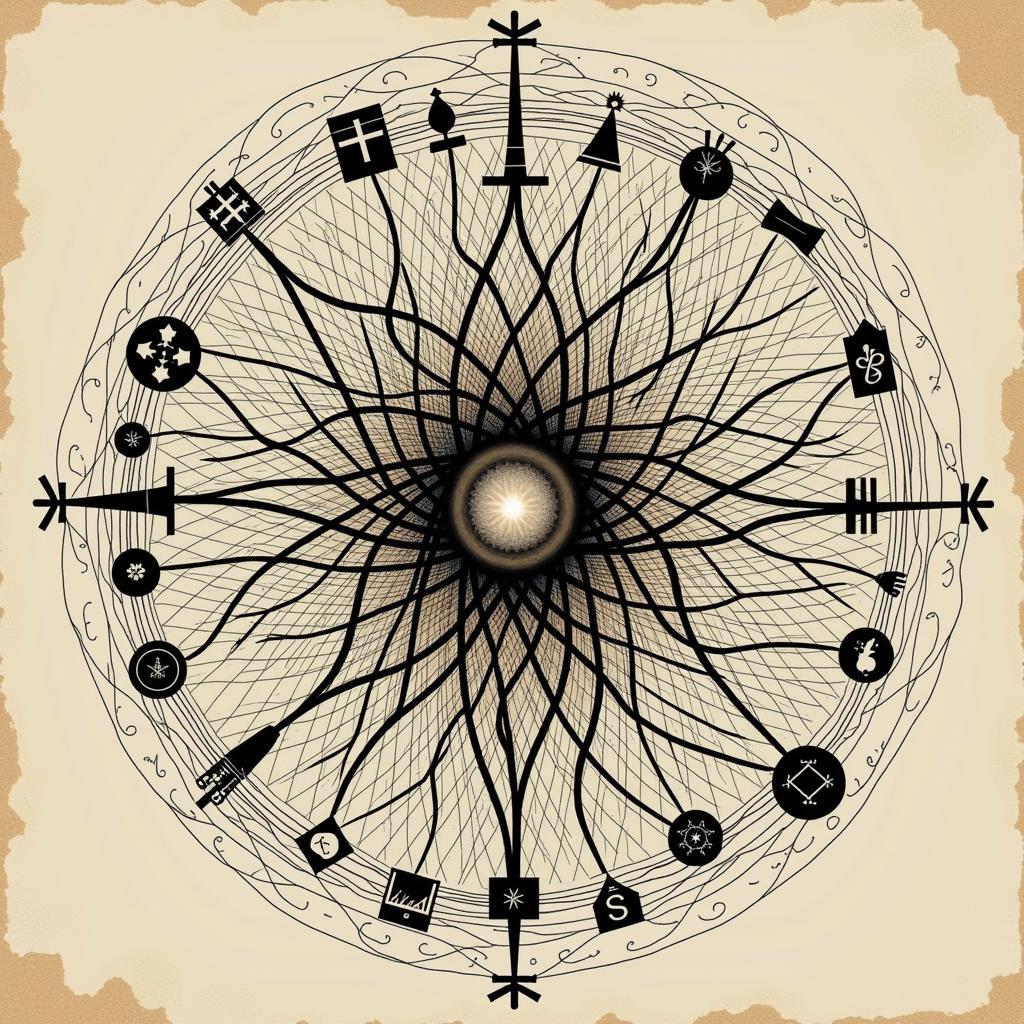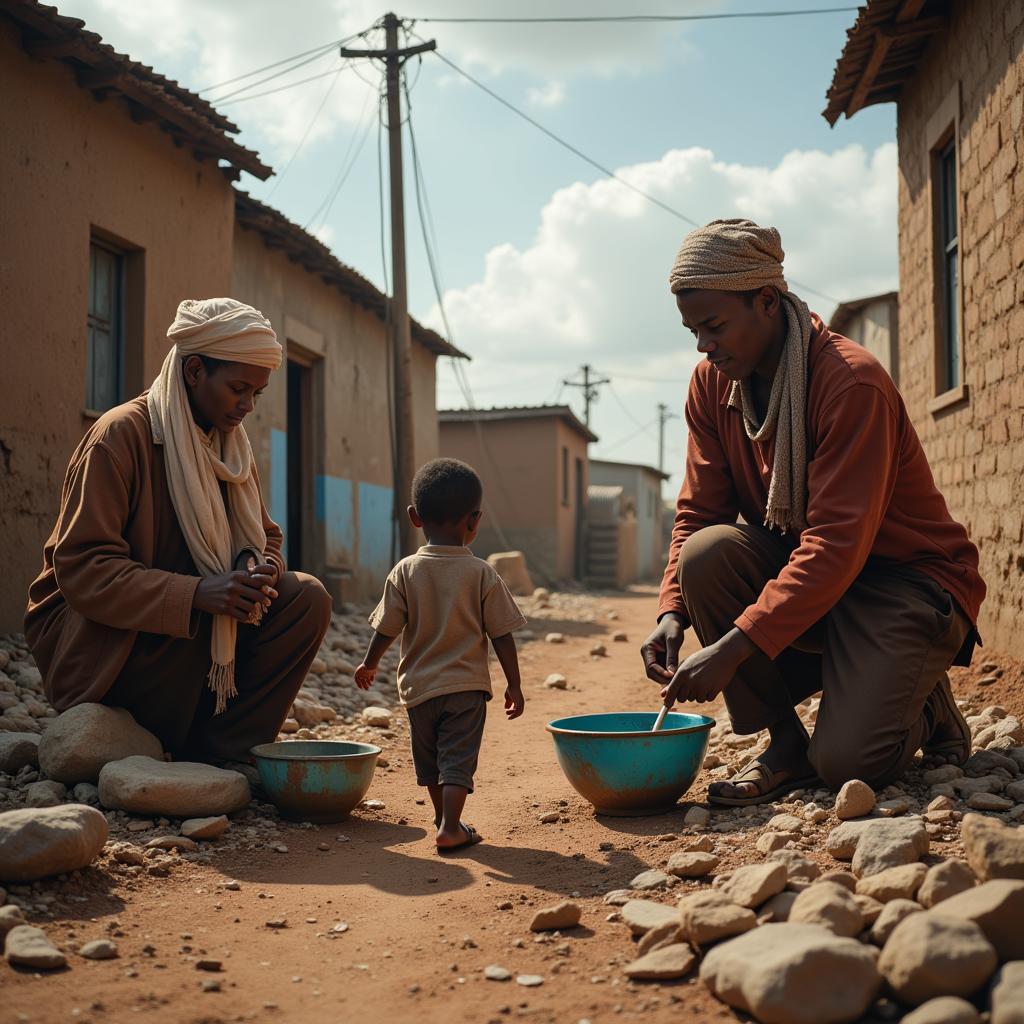The Moral Basis Of A Backward Society is a complex and multifaceted issue, often intertwined with cultural norms, historical context, and socioeconomic factors. Understanding these interconnected elements is crucial to fostering positive change and promoting a more equitable and just world. This article explores the various dimensions of morality in societies often labeled “backward” and aims to shed light on the nuances of this sensitive topic.
Defining “Backward” and Its Moral Implications
The term “backward” itself is fraught with problematic connotations, often implying a value judgment based on Western standards of progress. It’s crucial to recognize that societies evolve differently, and what might be considered “backward” from one perspective might simply represent a different path of development. However, certain practices within some societies raise ethical concerns, particularly regarding human rights and individual liberties. These practices often stem from a moral framework that differs significantly from contemporary global norms.  Moral Framework of a Backward Society
Moral Framework of a Backward Society
The Role of Tradition and Cultural Relativism
Traditional values and cultural relativism play a significant role in shaping the moral compass of a society. While respecting cultural diversity is paramount, certain traditions can perpetuate harmful practices, such as female genital mutilation, child marriage, or honor killings. The challenge lies in balancing respect for cultural differences with the universal principles of human rights. Is it possible to critique harmful practices without imposing external values? This question is at the heart of the debate surrounding the moral basis of a backward society.
Socioeconomic Factors and Their Influence on Morality
Poverty, lack of education, and limited access to healthcare can exacerbate existing inequalities and contribute to a moral framework that prioritizes survival over individual rights. For instance, in societies struggling with extreme poverty, child labor might be seen as a necessary evil for family survival, even though it violates international labor laws.  Socioeconomic Impact on Morality
Socioeconomic Impact on Morality
The Impact of Power Structures
Power structures within a society also play a critical role in defining and enforcing moral norms. Often, those in positions of power use their influence to maintain the status quo, even if it means perpetuating harmful practices. This can create a cycle of oppression where marginalized groups are denied basic rights and freedoms. Understanding these power dynamics is crucial to addressing the root causes of inequality and promoting social justice.
Challenging the Notion of a “Backward” Society
The very concept of a “backward” society can be harmful and perpetuate stereotypes. Instead of labeling entire societies, it’s more productive to focus on specific practices that violate human rights and work towards positive change through dialogue and collaboration. This requires a nuanced understanding of the historical, cultural, and socioeconomic context in which these practices occur.
Promoting Dialogue and Understanding
Open dialogue and cross-cultural understanding are essential for bridging the gap between different moral frameworks. By engaging in respectful conversations, we can learn from each other and work towards a shared understanding of human dignity and rights. This requires a willingness to challenge our own biases and assumptions and to approach other cultures with humility and empathy.
Conclusion
The moral basis of a backward society is a complex and sensitive topic that requires careful consideration. While respecting cultural diversity is important, it’s equally crucial to uphold universal human rights and challenge harmful practices. By fostering dialogue, promoting education, and addressing socioeconomic inequalities, we can work towards a more just and equitable world for all. The journey towards progress requires a commitment to understanding and empathy, recognizing that true development encompasses not just economic growth, but also the advancement of human rights and social justice.
FAQ
- What are some common characteristics of societies labeled “backward”?
- How does cultural relativism impact our understanding of morality in different societies?
- What role does socioeconomic inequality play in shaping moral values?
- How can we challenge harmful practices without imposing external values?
- What are some effective strategies for promoting cross-cultural understanding and dialogue?
- What are some examples of how traditional values can conflict with modern human rights standards?
- How can we move beyond the simplistic notion of “backward” societies and engage in more constructive conversations about cultural differences?
 Cross-Cultural Dialogue for Peace
Cross-Cultural Dialogue for Peace
If you need further assistance, please contact Phone Number: 02043854663, Email: societyforpeace@gmail.com or visit our address: Khu 34, Bac Giang, 260000, Vietnam. We have a 24/7 customer service team.
 using WordPress and
using WordPress and